TWO-YEARS SINCE THE MASSACRE IN EL PASO WE MUST COMBAT DOMESTIC EXTREMISM, ONLINE HATE AND DISINFORMATION
Social media has allowed hate, extremism, racism, and disinformation to spread faster and further than ever before, often resulting in real-world harms for real people. As we mark two years since the El Paso shooting, we come together to mourn and reflect on the events of that day; united not just in solidarity, but also by a common understanding of the lethal devastation that can follow the proliferation of online hate. In light of this moment, we are committed to doing everything we can to address domestic extremism, online hate and disinformation.
On August 3, 2019, a white supremacist’s deadly shooting spree at a Walmart in El Paso, Texas, took the lives of 23 people and injured 23 more–making it one of the deadliest domestic terror attacks and deadliest hate crimes in U.S. history, and the most horrific attack against the Latino community in recent U.S. history.
There is no doubt the shooter had hateful motives. In fact, he told law enforcement he intended to kill as many Mexicans as possible. He called his attack a response to “the Hispanic invasion of Texas” and said that he was defending America from “cultural and ethnic replacement brought on by an invasion.” The shooter’s manifesto, which was posted on 8chan the day of the shooting, espoused deeply bigoted and anti-immigrant views, including concerns about rising non-white immigration, fear of race mixing, and changing demographics.
This hateful act did not happen in a vacuum. Online disinformation and hate, like the 2,000+ fear mongering ads spread by the Trump Administration on Facebook about the “invasion” at the U.S. Southern border, are part of a media ecosystem that normalizes and mainstreams anti-immigrant sentiment. These messages influence hatemongers to act. Tragically, the massacre in El Paso is not the only shooting where white supremacists espoused hateful, racist, and anti-immigrant sentiment on social media, followed by the carrying out of heinous murders. Sadly, white supremacists’ online and propaganda vitriol towards U.S. Latino immigrants has not abated since the El Paso attack.
But how and why does anti-immigrant hate spread online? Leaders in positions of influence have demonized immigrants, asylum seekers and Latinos on social media and even placed false Facebook ads for their own political gain, warning about a fictional “invasion” from the southern border. This denigration of others due to race, ethnicity, national origin, immigration status, religious identity or culture are normalized and amplified on social media. And these messages are targeted to people who are vulnerable to believing them, based on demographic and behavioral data that the platforms collect about all their users on a daily basis. Ultimately, it is this normalization and unchecked hate that can lead to extremist tragedies and mass hate crimes.
The reality is that two years after the El Paso attack, the threat of domestic extremism has only become more intense. The intelligence community has recognized white supremacist extremism as a top U.S. security threat. Importantly, civil society and government entities are working hard to ameliorate this threat. Recently, the Biden Administration announced a first-ever comprehensive inter-agency strategy focused specifically on countering domestic violent extremism.
Still, we must be relentless in combating hate and disinformation in our media system, because it is a major contributing factor to the rise and influence of domestic extremism. Last July, the Stop Hate for Profit coalition launched a campaign to push social media companies, and specifically Facebook, to prioritize people over profit. The coalition said “enough is enough” after seeing advertisement after advertisement next to hateful and extremist posts. Stop Hate for Profit’s goal was for social media platforms to take common-sense steps to address the rampant racism, disinformation and hate on its platforms. While Facebook and other platforms have made some minor improvements, one year later there is a long way to go to stop the complicity of social media platforms in facilitating extremism.
We know that online platforms are not only spreading hate and lies about Latinos, but also targeting our community with false information. There is less oversight of disinformation in Spanish and other non-English languages. Latino communities have been relentlessly targeted by online disinformation campaigns which include political fake news, human smuggling ads, COVID-19 conspiracies and lies about COVID vaccines. Platforms must do more to moderate this deeply harmful content. To address this extremely important issue, a group of organizations came together to form the Ya Basta Facebook! Campaign.
As we mark the two years since the tragic mass shooting in El Paso, we recommit to the necessary work of preventing and countering domestic extremism and hate – but this cannot be done in silos. We need the government, the tech industry and the rest of civil society to commit to fighting racism, extremism, and disinformation on digital platforms to ensure the horrors lived in El Paso, TX are not replicated. We must ensure approaches to mitigating hate and extremism always include its intersection with the media ecosystem.
/undersigned Spanish Language Disinformation Coalition and Allies/
ADL (the Anti-Defamation League)
Dangerous Speech Project
EquisLabs
Free Press
Fundamedios
Global Project Against Hate and Extremism
Hispanics in Philanthropy
LatinoJustice PRLDEF
League of United Latin American Citizens
National Hispanic Media Coalition
UltraViolet
UnidosUS
United Church of Christ, OC Inc.
Asian Americans Advancing Justice | AAJC
Casa de Esperanza/National Latin@ Network
GreenLatinos
LatinasRepresent
MANA, A National Latina Organization
National Hispanic Caucus of State Legislators
National Hispanic Medical Association
National LGBTQ Task Force
SER-Jobs for Progress National Inc
Texas Border Coalition
United States Hispanic Chamber of Commerce
